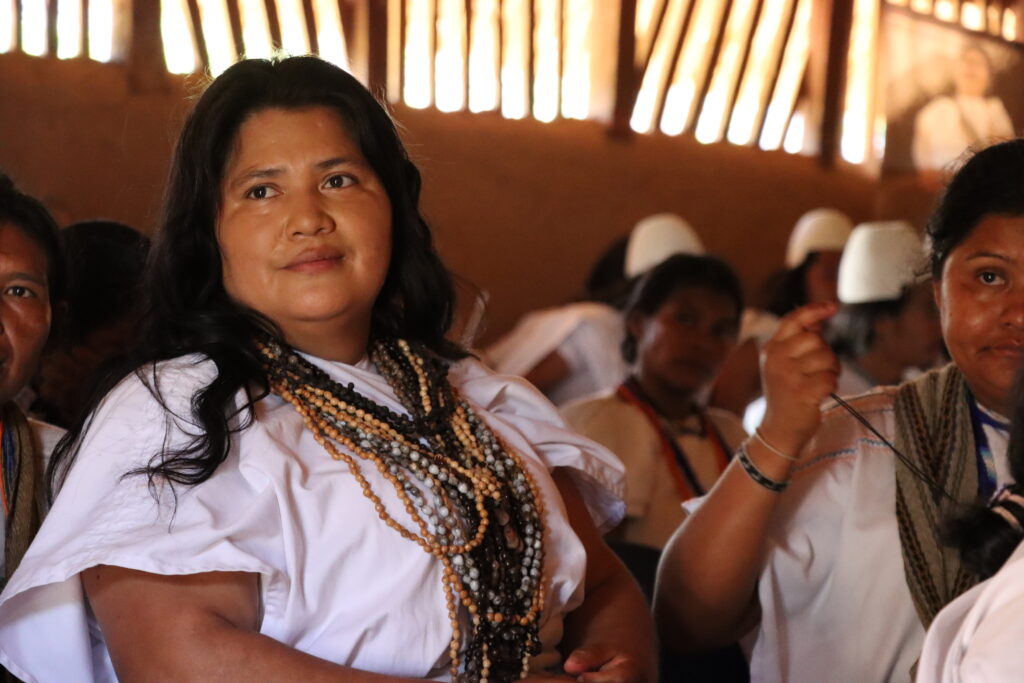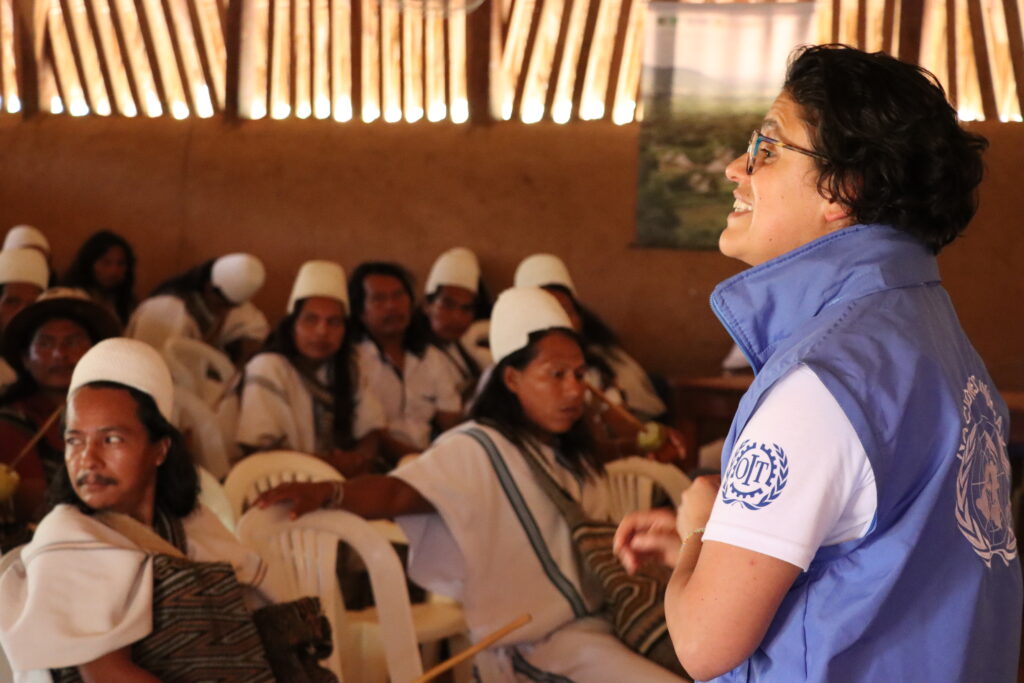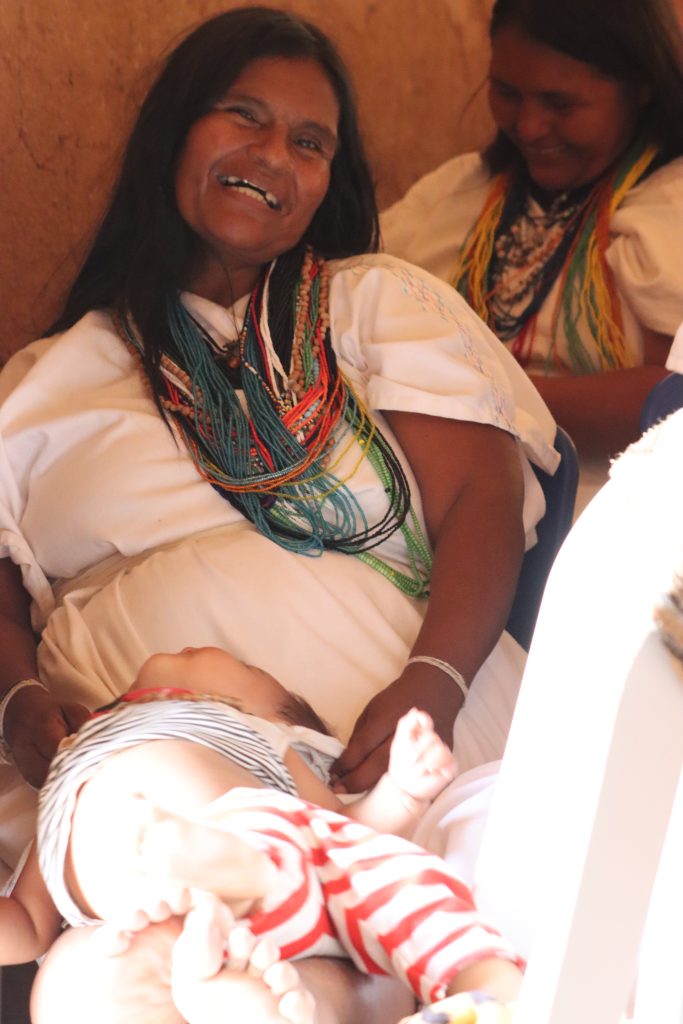Colombia’s Ministry of Equality and Equity is working with the International Labour Organization (ILO) to promote co-operatives and other Social and Solidarity Economy (SSE) entities as providers of care services and decent work.
This project started in the second half of 2023 with a national evaluation and mapping of care initiatives in the country, including 10 social and solidarity economy organisations.
The project team looked at a range of issues, including the structure of the organisations, how decisions were taken, how they functioned in the territory and within their community, what resources they had, what working conditions they had and whether other organisations could support them.
Of these, two organisations were selected to receive training and funding: the women’s association JOSA Constructoras de Paz, focused on childcare in the indigenous community of the Arhuaco people in the Cesar department, and ASOREDIPAR Chocó, dedicated to midwifery in the Chocó department.
As part of this pilot, the two organisations are receiving training in the think.carecoop and start.carecoop methodologies, designed to strengthen solidarity economy entities that provide care.
Despite not being co-operatives, the two associations, which form part of the wider social and solidarity economy, were introduced to the co-operative values and principles.

“It’s important to value and respect what is already happening within the territory in coherence with International Labour Standards and a human rights perspective,” explains Carolina Pava, project coordinator in Colombia.

Some of the challenges women face are cultural, she adds. For women in the indigenous community of the Arhuaco, being in charge of their homes and taking on caring responsibilities without being remunerated is part of their culture.
The project team aims to help them set up a childcare centre to enable women to leave their children there while they work. For these Indigenous women, the absence of childcare places means children are more at risk, explains Pava.
Meanwhile, women at ASOREDIPAR in Chocó are stepping in to provide essential midwifery services in their communities, conducting a maternity care process that includes 1,0000 days of pre- and post-natal care of of the mother and the child.

Going forward, they hope to be able to open a midwifery centre as well as grow medicinal plants to produce medicine. Despite the essential role they provide, the midwives do not have access to social security services. The project will recommend that care work is remunerated, and the women are given access to social protection as well as being recognised by the healthcare system, understanding that ancestral midwifery and modern medicine should be complementary services.
By working together, the two systems can better support parturients and children . All findings will inform an upcoming public policy document the Ministry is preparing: CONPES of Care.
“It’s important to value and respect what is already happening within the territory,” says Pava.
The project team is revisiting the methodology and looking at the business plans of the two organisations while trying to involve local governments. The pilot learnings will be systematised, and the methodology will be fed back with lessons learned.
Pava adds: “The initiative seeks to position co-operatives and solidarity entities as innovative solutions in the care sector, especially the care provided in the vast Colombian territory, contributing to decent work and gender transformation in this crucial activity for sustainable development.”

